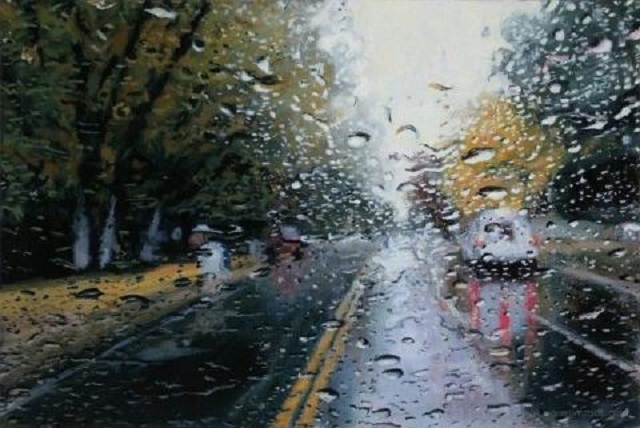
The Sunday News

Lovert Mafukure
It’s a norm to see accidents every time there’s a rain drop or two. It’s as if people become confused when the rains come down.
The problem is that we drive the same way when it rains as we do when the sun is shining. We ought to be a bit more patient in wet weather.
A wise man once said that the biggest problem with communication is the illusion that it has taken place.
When the rains come, visibility is a problem not to a select few but most of us drivers.
With misty windows and rains pouring down, communication is almost impossible between drivers and mostly everyone relies on fog lights and light signals to see the next person and his intentions.
But what happens when the next person cannot be seen or cannot see you? Well, food for thought.
For security and safety reasons, imports from Japan come with privacy/tinted glass on back windows only. In Zim it’s not really policed because perhaps they haven’t seen any need to so people tint their windows with some really dark tint. It looks nice but poses a serious hazard.
Others also tint their headlights and tail lights dark for that “cool” factor, its nice and all but other road users may not see your signals.
I believe if one is going to tint their windows or their lights they have to do it the right way. The right way means your car will be “courteous” and not a menace on the road.
In this part of the world, we can’t boast of any good roads. Circumstances beyond control I guess have led to the demise of our once nice roads. When the rains start pouring, they flood our city streets.
Poor and blocked drainage systems all mean we suddenly need boats and not cars when it starts raining because the argument between a flooded street and Japanese tyres is one that we can never win.
I hate to say this but these Japanese cars are just too fast for some of us, sometimes other drivers are careless and speed through the flooded streets forgetting that no matter how fast you go, you will need to stop. In a previous article we did talk about hydroplaning, it’s near impossible to control a car when it starts sliding on top of the water.
Rainy season needs you to have a good set of tyres with good tread depth so they can be able to scatter water and still maintain good traction.
Some of the used tyres coming into the country are snow tyres with different tread design that will not even help your case in the rain.
Late models cars, however, have things like traction control to help drivers in times when cars want to slide out of control but we need not always rely on them, always better to be safe than sorry.
Avoid cruise control in the rain, it delays reaction time in the event that you need to stop immediately and in most cases you rarely see that far in the rain and when you need to stop you need ample reaction time.
A lot of us like low profile wide tyres and a nice set of rims. They are also “cool” to have because they provide good grip and better braking power in dry weather but not so much in wet weather.
Wider tyres distribute the weight of a vehicle over a larger surface area as compared to thinner tyres and that makes hydroplaning a higher possibility.
However, from a less scientific point of view, friction between the road surface and the tyres is reduced on a wet surface regardless of the type of tyres.
That simply means whatever you do, you need to slow down because less friction also means greater stopping distance is required than on a dry surface.
It’s also wise to keep a good distance between yourself and the next person to accommodate stopping distance.
Potholes and low profile tyres are a bad combination for your pocket. They are more expensive and more susceptible to damage.
More-so, low profile tyres are made stiffer than normal tyres and they don’t flex much and so they don’t have much of that cushioning factor like normal tyres. They get damaged easy.
Again, the art of driving is all about visibility. Vision and wipers work hand in glove. Wipers blades are exposed to all kinds of harsh weather conditions and sometimes you don’t even use them for the better part of the year. Its good to regularly check them for wear and tear especially as the rainy season approaches because when you need them…you need them bad. Simple checks can increase the safety standards on our roads.
There’s a simple wiper blade test that’s common. Take a cup of water and add a teaspoon of flour then splash it on your windscreen and see how well the wipers clean out the mess.
The result determines how well your wipers will also help you maintain good visibility in the rain.
Lets drive differently, more cautiously…we might just make a difference!-@lovert116
Automart Used Spares Centre — Quality Used Japanese Spares
+263 772 33 99 38 – [email protected]/ Facebook: @automartusc



